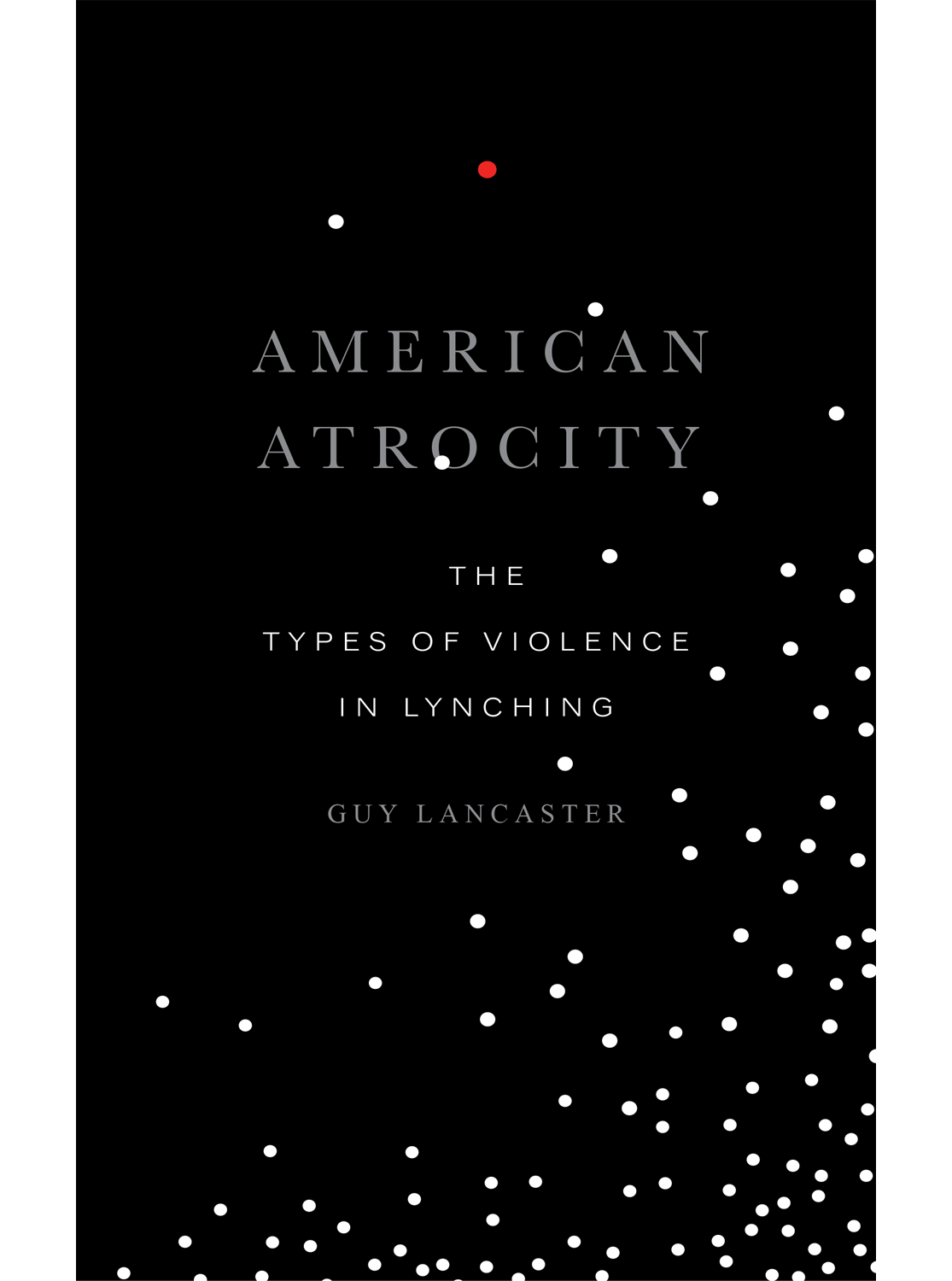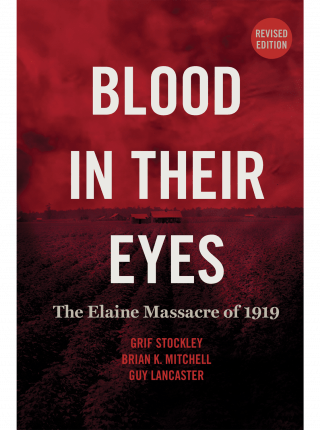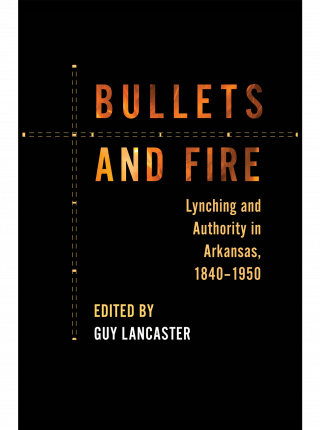Lynching is often viewed as a narrow form of violence: either the spontaneous act of an angry mob against accused individuals, or a demonstration of white supremacy against an entire population considered subhuman. However, in this new treatise, historian Guy Lancaster exposes the multiple forms of violence hidden beneath the singular label of lynching.
Lancaster, who has written extensively on racial violence, details several lynchings of Blacks by white posses in post-Reconstruction Arkansas. Drawing from the fields of history, philosophy, cognitive science, sociology, and literary theory, and quoting chilling contemporary accounts, he argues that the act of lynching encompasses five distinct but overlapping types of violence. This new framework reveals lynching to be even more of an atrocity than previously understood: that mobs did not disregard the humanity of their victims but rather reveled in it; that they were not simply enacting personal vengeance but manifesting an elite project of subjugation. Lancaster thus clarifies and connects the motives and goals of seemingly isolated lynch mobs, embedding the practice in the ongoing enforcement of white supremacy. By interrogating the substance of lynching, American Atrocity shines new light on both past anti-Black violence and the historical underpinnings of our present moment.
Guy Lancaster is the editor of the online Encyclopedia of Arkansas, a project of the Central Arkansas Library System, and the editor of the award-winning Bullets and Fire: Lynching and Authority in Arkansas, 1840–1950.
“Combining history, sociology, philosophy, and cognitive science, Guy Lancaster’s concise and thought-provoking American Atrocity: The Types of Violence in Lynching is a response to the mutability of definitions and lack of unifying theory in lynching studies. Lancaster’s interdisciplinary work helps readers make sense of what he calls ‘the limits of typology,’ or the various forms of violence within the category of lynching, as well as the language we use to describe racialized violence. Lancaster is intimately familiar with the history of lynching in Arkansas, and he culls harrowing case studies from the state to make several novel and crucial points. … Rather than attempting an exhaustive definition of lynching, this book provides something more useful: an attempt at theoretical coherence, as well as confirmation that lynching persists and continues to evolve. American Atrocity is an engrossing and important book.”
—Matthew E. Stanley, The Journal of Southern History, February 2023
“Lancaster’s book … is a timely and important work. [It] reveals a mastery of the source material, expertly blending primary and secondary sources in engaging prose. This book should find a home in college courses on race and the new South. But it is the kind of book everyone should read.”
—Colin Edward Woodward, Arkansas Historical Quarterly, Summer 2022
“In his recent American Atrocity, [Lancaster] links the history of anti-Black mob violence in Arkansas to an analysis of theoretical works on the meaning of violence drawn from academic fields like history, philosophy, literary theory, and cognitive science to wring new understands about, as he subtitles it, the types of violence that comprised the essentially subjective category of lynching. [T]his is a thoughtful and sometimes brilliant work that should enjoy a broad readership among specialists in Arkansas history, in lynching studies, and violence studies more generally.”
—Brent M. S. Campney, Arkansas Review, August 2022
“American Atrocity is a small book with a powerful message of uncovering more than just the centuries of these hidden crimes in Arkansas. This volume, exposing lynching to the light of history, justice, and scholarship, is a unique gem of social enlightenment from the University of Arkansas Press.”
—Maylon T. Rice, Fort Smith Historical Society Journal, April 2022
“American Atrocity marks the further emergence of Guy Lancaster as a major voice in the re-writing of the history of racial violence in the US past. It shows to full advantage the command of sources that so distinguishes his work on ethnic cleansing in Arkansas, but adds deep, philosophically informed reflections probing the role of lynching in patterns of terror and in the reproduction of white supremacy. Compact, provocative, and attentive to complexity, this arresting book especially excels in showing the entanglements of extralegal punishments with state violence.”
—David Roediger, author of How Race Survived US History
“Guy Lancaster’s American Atrocity sheds new light on lynching and American racial violence. With a thoughtfully interdisciplinary approach, Lancaster draws from Arkansas history to offer significant reflections on the dynamics of American mob violence and white supremacy.”
—Michael J. Pfeifer, author of The Roots of Rough Justice: Origins of American Lynching
“In American Atrocity, Guy Lancaster grapples with the definition and meaning of lynching in the American South. He skillfully weaves concepts from the social sciences and humanities with historical evidence, underscoring the way that group violence served to foster white racial solidarity in its efforts to terrorize southern Black people. This book is well written and well worth the read, inviting scholars to expand their conceptualization of key issues related to racial violence.”
—Amy Kate Bailey, co-author of Lynched: The Victims of Southern Mob Violence

Adopted at: Colorado State University
Course: HIST 512 – Reading Seminar: U.S. Since 1877
Course Description: Readings on United States history since 1877.
Professor: Jessica Jackson
Term: Spring 2024




